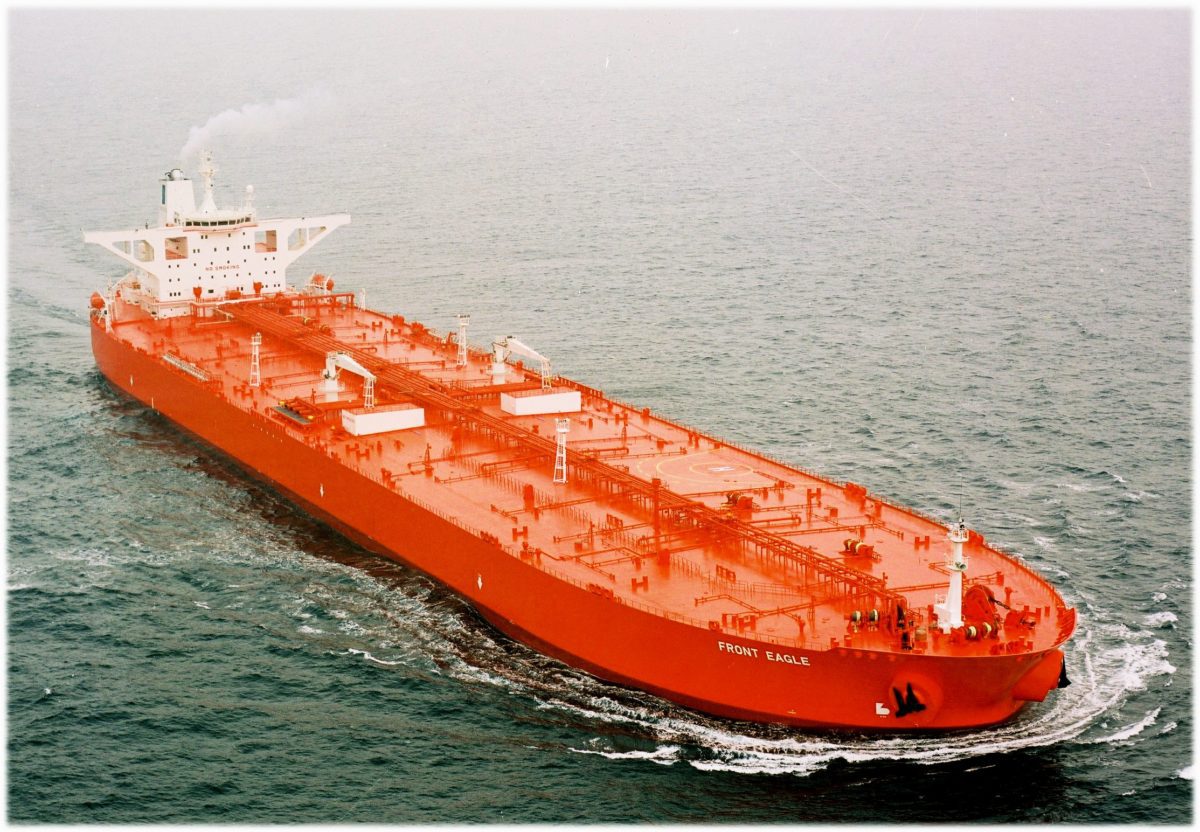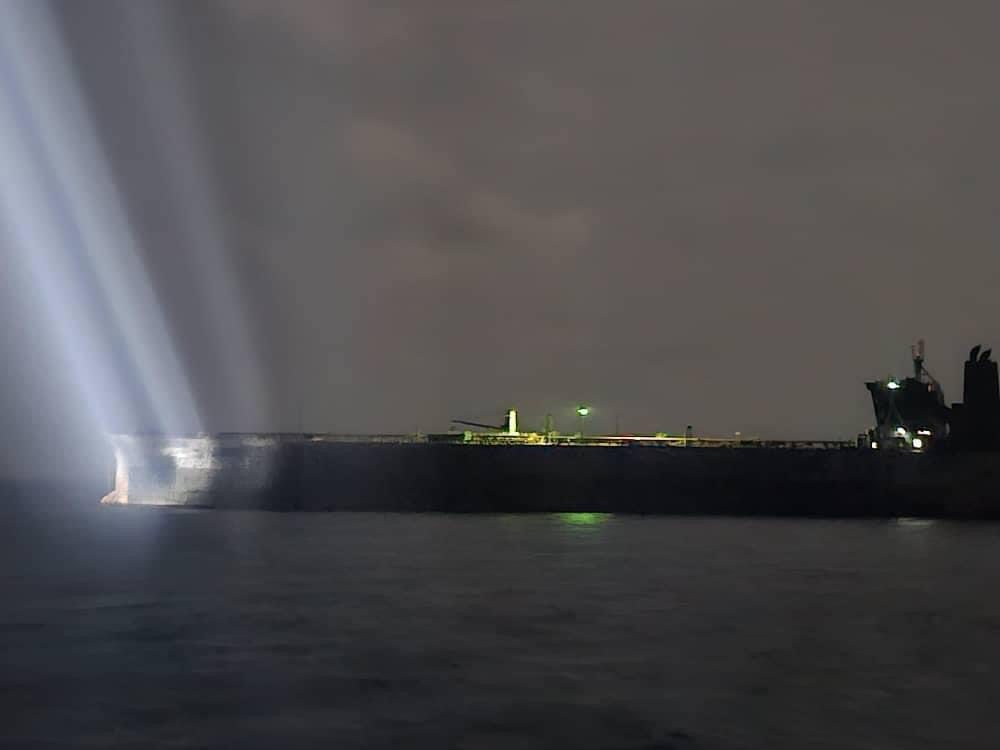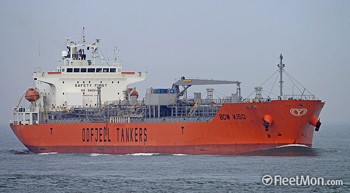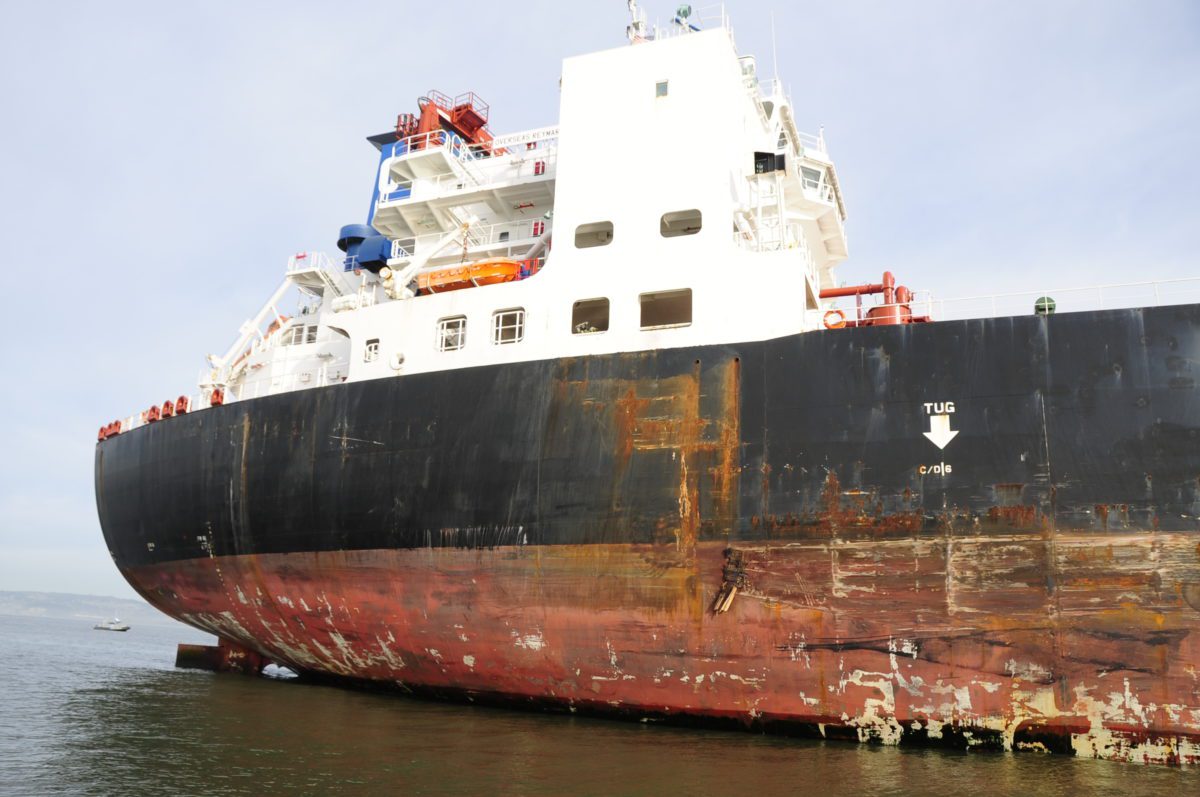By Maha El Dahan and Stine Jacobsen
DUBAI/COPENHAGEN, June 17 (Reuters) – Two oil tankers collided and caught fire on Tuesday near the Strait of Hormuz, where electronic interference has surged during conflict between Iran and Israel, but there were no injuries to crew or spillage reported.
With Iran and Israel firing missiles at each other since Friday, interference has disrupted navigation systems near the vital sea route between Iran and Oman which handles about a fifth of the world’s oil.
The United Arab Emirates coast guard said it had evacuated 24 people from one of the ships, Adalynn, to Khor Fakkan port after the crash 24 nautical miles off its eastern coast.
Personnel on the second tanker, the Front Eagle, were reported safe with no pollution seen after a fire on its deck, according to its owner, the Oslo-listed company Frontline.
Update: Navigation Error Suspected in VLCC-Suezmax Crash Off Fujairah
The Front Eagle was loaded with 2 million barrels of Iraqi crude oil and was en route to Zhoushan in China, according to monitoring service TankerTrackers.com.
The Adalynn, a Suezmax-class tanker owned by India-based Global Shipping Holding Ltd, had no cargo and was sailing towards the Suez Canal in Egypt, the monitoring service said.
TankerTrackers.com said on X that the Front Eagle was moving southbound at a speed of 13.1 knots when it “executed a starboard (right) turn, resulting in a collision with the port quarter (aft port side)” of the Adalynn, which was proceeding southeast at 4.8 knots.
The Strait of Hormuz links the Gulf to the northwest with the Gulf of Oman to the southeast and the Arabian Sea beyond.
Between the start of 2022 and last month, roughly 17.8 million to 20.8 million barrels of crude, condensate and fuels flowed through daily, according to data from Vortexa.
The multinational, U.S.-led Combined Maritime Force’s JMIC information center said in an advisory this week that it had received reports of electronic interference stemming from the vicinity of Iran’s Port of Bandar Abbas (in Iran) and other areas in the Gulf region.
Tehran has in the past threatened to close the strait to traffic in retaliation for Western pressure.
Iran has not commented about Tuesday’s collision or reports of electronic interference. There was no immediate response to a Reuters request for comment from the Emirati foreign ministry or Khor Fakkan container terminal early on Tuesday.
(Reporting by Yomna Ehab and Enas Alashray in Cairo, Maha El Dahan in Dubai and Stine B. Jacobsen in Copenhagen; additional reporting by Jonathan Saul in London; Writing by Federico Maccioni; Writing by Federico Maccioni; Editing by Neil Fullick, William Maclean and Andrew Cawthorne)
(c) Copyright Thomson Reuters 2025.
Editorial Standards · Corrections · About gCaptain
This article contains reporting from Reuters, published under license.

 Join The Club
Join The Club











